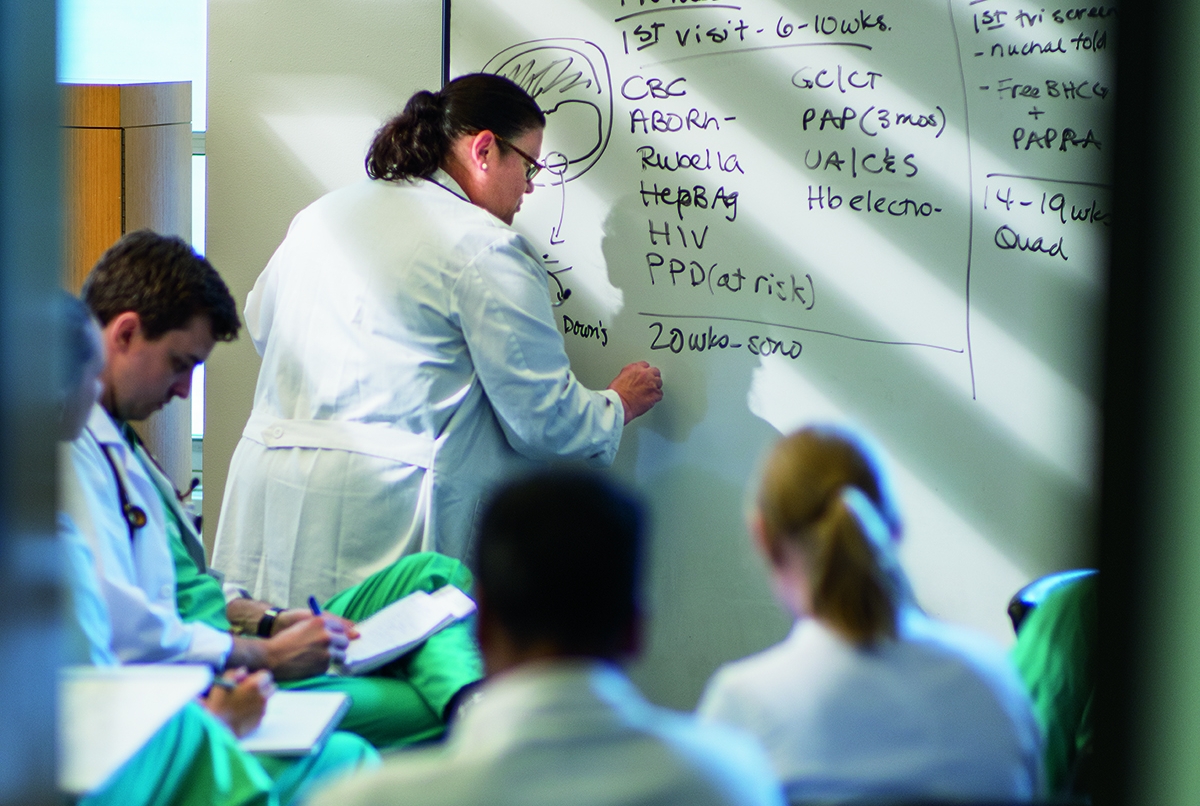Weill Cornell Medical College announced today that it has launched a $50 million campaign to support and enhance medical education at the institution.
The Campaign for Education is devoted to bolstering Weill Cornell's already distinguished reputation as a leader in medical education by enhancing its top-tier training for the next generation of physicians and scientists. As technological advances transform science and medicine and the healthcare industry continues to evolve, these new practitioners will be empowered to tackle our 21st century health challenges, deliver exceptional patient care, make groundbreaking research discoveries and teach future aspiring doctors.
"We at Weill Cornell pride ourselves on providing exceptional medical education and training to our aspiring physicians and scientists, and the Campaign for Education will take Weill Cornell to the next level of excellence," said Dr. Laurie H. Glimcher, the Stephen and Suzanne Weiss Dean of Weill Cornell Medical College. "The campaign will support our extraordinary efforts to transform our curriculum and ensure that we shape the best doctors who are dedicated to improving the lives of patients."
The heart of the Campaign for Education is Weill Cornell's new curriculum, which was unveiled earlier this fall after a four-year design process. With a modern approach to medical education, the curriculum strives to nurture physician-scientists who will not only be successful in their future careers, but also lead the way in the evolving healthcare environment.
The curriculum transforms the paradigm of medical education by integrating basic science with clinical care, and focuses on a cross-disciplinary, thematic view of medicine. Didactics have been shortened to a year and a half so that students can work in the clinic earlier, and it provides a six- to nine-month flexible time period during which students can devote their attention to a specific scholarly concentration. A longitudinal patient care experience, called LEAP, enables teams of students, with faculty guidance, to follow a panel of patients with chronic illnesses for all four years of their medical education. This program allows students to immediately apply what they are learning in the classroom to patient care.
In addition, Weill Cornell is utilizing modern learning pedagogies to better reach the 21st century learner. A robust technology infrastructure will enable lectures to be digitized and archived in a meta-library so students and faculty can use time in the classroom for discussing clinical and biomedical problems.
"Medicine is hardly the same profession it was when I was training at Weill Cornell, and yet medical education up until now has largely remained the same," said Dr. Richard P. Cohen, a clinical professor of medicine and alumnus who is a campaign co-chair. "It's exciting to be a part of these transformative efforts and empower our newest doctors to lead the charge in patient care, biomedical research and medical education."
The Campaign for Education, which is part of the Driving Discoveries, Changing Lives campaign that Weill Cornell launched last year, strives to support these efforts by raising money to fund faculty endowments, student scholarships and capital improvements to Weill Cornell's Weill Education Center, including its main auditorium, teaching laboratories and classrooms. It will also provide faculty, who as the purveyors of medical and scientific knowledge play a crucial role in training the next generation of physicians and scientists, with tools and resources to become even better teachers.
"Weill Cornell has long been a driver of excellence in medical education, and the Campaign for Education will ensure that we remain at the vanguard," said Sanford B. Ehrenkranz, a member of Weill Cornell's Board of Overseers and campaign co-chair. "I can think of no better investment than supporting our faculty and students."

